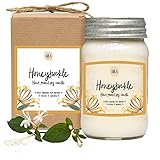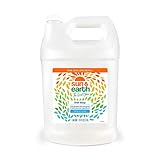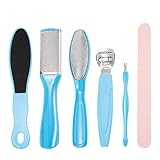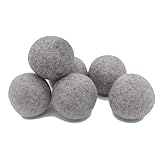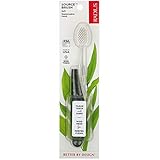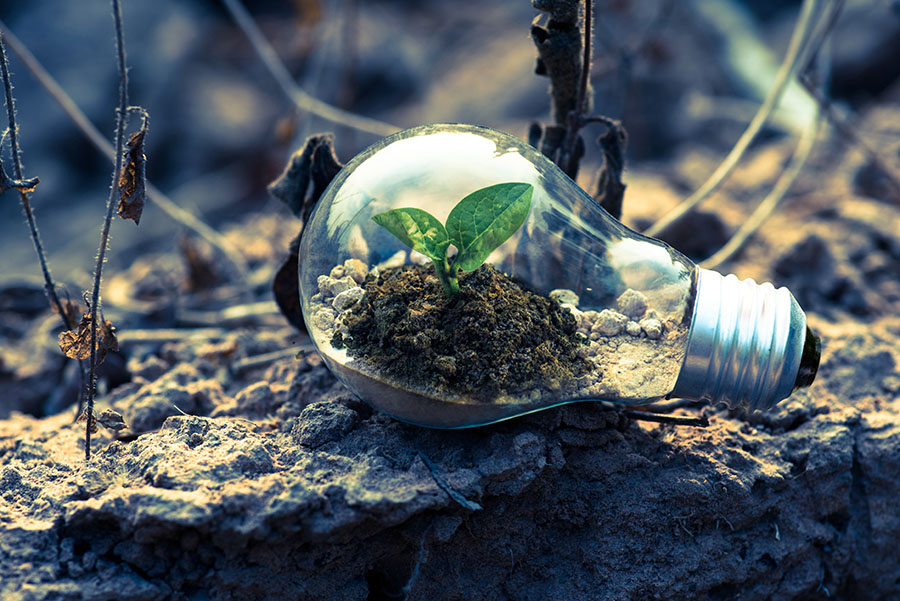
A majority of us want to be friendlier to Earth, but not everyone knows exactly how. Let’s zone in on the area of household habits and replace all the plastic bottles, paper towels and single-use items that we continuously use and/or buy with something that can be used again and again.
When assessing the impact a product has on the environment, don’t just think of the materials its made with. Think also of the materials and waste in the processing of the product, it’s packaging, and also the transportation and fuel usage to get the product to you.
The question is, how we can:
- Reduce Plastic & Paper Consumption & Waste
- Reduce Chemical Usage
- Reduce Fuel & Energy Usage
Not only will these alternatives be more earth friendly, they’ll also save you money, and who doesn’t love saving money?
- Water
- Scents
- Kitchen Cleanup
- Produce Storage & Bulk Food Bags
- Leftover Food Storage
- Soap
- Cleaning Supplies
- Laundry
- Toilet Paper
- Toothbrushes
- Shower Curtain
1. Water
It’s easy to grab a plastic bottle of water at the store, but all those plastic bottles take over a lifetime to decompose. It’s not a wise decision unless it’s an absolute emergency.
The obvious solution is filing up your own reusable water bottle, I use a mason jar because they’re easy to clean. Now what to put in it. I cannot recommend faucet filters like Brita, because it hardly eliminates any pollutants. My favorite options are to buy an at-home filtration system or fill up the same reusable water jugs at a store.
My family of three uses three 5-gallon BPA-free plastic water jugs a week. We fill it up with reverse osmosis water from our local health food stores. It’s a workout and I look forward to the day we have our own reverse osmosis water system, but until then this works well. We have been doing this for the past decade and the difference in our health is surreal. Water is life!
2. Scents
Avoid breathing in harsh chemicals from fake fragrances. Choose instead real fragrances from fresh plants and flowers, or concentrated in oils.
I personally use the first diffuser listed below, that is also an air humidifier, with 1-2 drops of essential oil. I run my diffuser for about 6 hours on a couple drops. It’s cheap easy and it also makes the air I breath more luxurious.
The second option is a waterless diffuser, something I would be interested in trying in the future.
Don’t forget about the old fashion version of wooden sticks in a glass jar to carry the scent of essential oils, this is most likely the most eco-friendly option.
Organic, vegan soy candles are perhaps the most eco-friendly candle alternative. There’s something romantic about a lit candle in the house. These candles last about 100 hours, but they’re still a bit pricy at $25.
3. Kitchen Cleanup
Starting in the kitchen, let’s replace paper towels with cotton towels.
I don’t know about you but I used a ton of paper towels to clean up pretty much anything and everything. They were so clean and convenient, I even used them to dry my hands sometimes. It’s a habit I’m not proud of.
Pros: More absorbent, softer, no paper lint, and better for scrubbing.
Cons: Extra load of laundry, takes time to clean and fold.
https://www.drgreene.com/perspectives/13-facts-about-home-paper-products-that-may-inspire-you-to-hug-a-tree/
4. Produce Storage & Bulk Food Bags
Replace plastic bags with organic cotton muslin bags that can be washed again and again. You can use these to store produce in the fridge, or you can use them to transport nuts, seeds, pasta, etc. from the bulk bins to mason jars for a more permanent storage.
[pin_widget url=”https://www.pinterest.com/pin/194499277631724458/”]
Refrigeration
Plastic bags ultimately trap moisture and cause produce to mold prematurely.
With cotton bags, produce will dry out instead of getting wet and moldy.
To keep produce from drying out just wet the bag and it will stay moist for about a couple of days. Re-wet to keep produce fresher longer.
And remember potatoes, winter squashes, onions, tomatoes, bananas, avocados, and garlic don’t need to be stored in the fridge. They can be displayed in baskets or bowls around the kitchen as decorations
View this post on Instagram
5. Leftovers Storage
Before I became aware of my waste habits, I used to use plastic bags for everything. Half an avocado leftover? Plastic bag. Half an onion, tomato, lemon, etc.? Plastic bag. I used a plastic bag for all produce in the fridge. I also used it to store bananas in the freezer.
Leftovers
When you have enough glass containers, you never need to use a bag for leftover produce or dinner.
Sometimes I’ll cut too many vegetables and store them in mason jars for quick meals the next day.
When you go out to dinner it may be a little awkward to bring in glass containers, we bring these collapsible containers instead.
My husband loves these lightweight collapsible silicone bowls for his lunches.
Frozen Fruit Box
If you use a bag a week to freeze your bananas, you’re using 52 bags a year just on frozen bananas. Use a food storage container instead.
While plastic is the cheapest option, the most durable option is to use a stainless steel container like this icebox.
6. Dish & Hand Soap
Many states now have bulk cleaning and bathing supplies, where you bring your own container and fill up. Check out litterless.com to find package-free, zero-waste stores near you.
If there is nothing near you, the next best thing is to buy in bulk and ditch the small plastic containers.
Dish Soap
Our favorite natural dish soap is “Sun & Earth”.
As a marker, I used to buy their 12oz for $5 and it lasted about a month. That’s 12 plastic bottles a year. This 128oz will last me almost an entire year. Then when I’m done with this bottle I’ll use it to refill at the local grocery store near me that does bulk soaps.
Ecos is our next favorite when Sun & Earth are not in stock.
Hand Soap
A big bottle of castile soap can last a year with a foam dispenser. Just add 1 part soap and 3 parts water and you have the perfect foaming soap. Some stores also have a bulk area to load up on castile soap.
7. Cleaning Supplies
I used to buy all the leading brand name chemicals that came in small plastic bottles. Then my next step towards improvement was buying somewhat natural products, still in small plastic bottles.
Taking it a step further, the only cleaning supplies we really need are baking soda and vinegar, and you can buy those in bulk. I get a year’s worth of cleaning supplies for about $20.
Baking soda is the best abrasive cleaner for tough jobs like sinks, bathtubs, toilets, etc. When mixed with vinegar it starts to fizz and bubble up, it’s the perfect cleaning solution. You don’t need a bunch of different squirt bottles.
The baking soda listed below is 5 pounds for $4. I put it in mason jars under all the sinks for easy access and it looks pretty as a bonus.
Vinegar is cheap, I get it from target for about $3-4/ gallon. 1-2 gallons is all you’ll need for the year. (I wouldn’t buy vinegar online in case it arrives damaged.)
And don’t forget rags over paper towels. Cleaning rags can be old kitchen rags, old clothes, or if you buy the cotton terry towels from #1 on this list, you can set a handful aside for cleaning.
8. Laundry
I am definitely guilty of going through about 20 plastic laundry detergent bottles a year. It was what I was used to and I thought that by making sure there were no harmful chemicals, I was doing my best to be Earth-friendly. But I never considered the impact that the plastic bottles would have on the Earth. Plastic takes about 100 years to decompose!
https://home.howstuffworks.com/laundry-detergent4.htm
Laundry Dropps
This is our everyday product for laundry. I love that it comes in a cardboard box, so there is no waste. I also love how clean it gets our laundry.
Soap Nuts
Perhaps the most eco-friendly option there is. Soap nuts don’t require any materials to be processed because they’re unprocessed, they grow on trees. And they can be tossed in your compost when you’re done. I never even knew about soap nuts until recently when my mom got them for me for Christmas. I was very skeptical, but they actually worked for me! To give an example, my toddler got marker all on her shirt and the soap nuts got it out.
1 bag of soap nuts lasts 120 loads and costs $12.
Laundry Powder
Laundry powder is still the cheapest at 150 loads for $12. I use this stuff to clean my kitchen rags and cloth diapers.
Dryer Balls
Skip chemical laden fabric softeners and dryer sheets and replace them with wool dryer balls that last forever. If you prefer a scent, you can add essential oils to the dryer balls.
9. Toilet Paper
Regular toilet paper is usually bleached, glued, and packaged in plastic, all of which are not environmentally friendly. Our family used Scott toilet paper for many years, but when we switched to Who Gives A Crap, we were pleasantly surprised that it was the exact same price, much better quality, and better for the environment. It’s a win-win.
View this post on Instagram
10. Toothbrushes
There are a lot of alternative toothbrush options these days, it can be hard to pick and choose. We have been using the radius toothbrushes for over a decade and we love it.
We branched out and tried the new Boie toothbrushes but the bristles were too soft for me, and while the design was eco-friendly it created an area where bacteria could build up in the connection between the brush head and handle. My husband still thinks it’s the best toothbrush he has ever used, just requires a bit more maintenance.
Perhaps the most eco-friendly toothbrush is the biodegradable bamboo toothbrush.
9. Shower Curtain Liners
Get a fabric shower curtain liner and save a bunch of money!
Plastic shower curtains get dirty quick, even those that claim to be mildew resistant, and you get stuck in the perpetual cycle of throwing away and buying a new shower curtain every 6 months or so.
A fabric curtain is the exact same price as an okay quality plastic curtain and it looks and feels way better.
I am so happy I switched to fabric shower curtains. We have had ours for almost 2 years now and I just throw it in the wash with my soap nuts and it’s like a brand new shower curtain.
A Forever Journey
There are still a lot of areas that I need to explore, but this is where I’m at so far. I’ve come a long way from using heavily marketed non-earth/health friendly products. I hope to inspire you to change just a few of your ways.
You don’t have to do it all at once.
There are a ton of ways you can be more earth-friendly and it can be incremental, you don’t have to do everything all at once. It can be overwhelming to try and completely change our habits and lifestyle all at the same time. Of course if you’re a “dive-head-first”, throw everything out and start anew, kind of person, go do what makes sense to you and power to you!! But remember to give away before you throw away please. 😉







